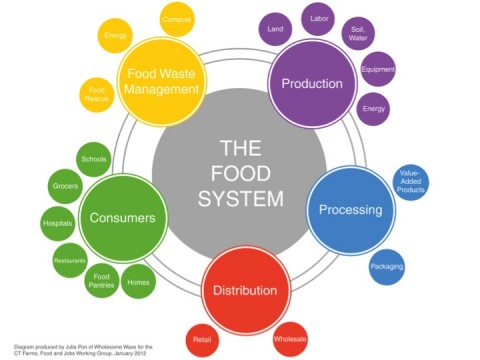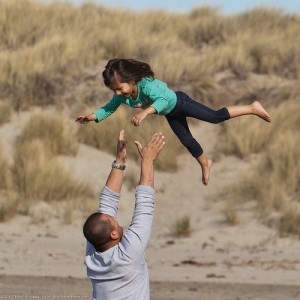Abolition!
Ok. That’s a bit of an over statement. But I was truly intrigued by a German town’s experiment in abolishing traffic lights and codes. Sounds like anarchy? Amazingly enough accidents are almost nonexistent.
2 CommentsOk. That’s a bit of an over statement. But I was truly intrigued by a German town’s experiment in abolishing traffic lights and codes. Sounds like anarchy? Amazingly enough accidents are almost nonexistent.
2 CommentsThe following is a letter by Akaya Windwood, President of the Rockwood Leadership Institute and member of the IISC Board of Directors. We hope you enjoy it as much as we did and don’t forget to join the conversation!
Recently, four friends of mine lost parents and siblings. Rockwood has had a few unanticipated challenges this year. The ripples of the 2008 recession are still affecting the nonprofit sector, and many organizations are struggling. The instability of our national government in recent months has made things very difficult for many folks.
1 CommentThe following is a letter by Akaya Windwood, President of the Rockwood Leadership Institute and member of the IISC Board of Directors. We hope you enjoy it as much as we did and don’t forget to join the conversation!
Recently, four friends of mine lost parents and siblings. Rockwood has had a few unanticipated challenges this year. The ripples of the 2008 recession are still affecting the nonprofit sector, and many organizations are struggling. The instability of our national government in recent months has made things very difficult for many folks.
1 Comment“The major problems of the world are the result of the difference between the way nature works and the way people think.”
— Gregory Bateson

|Photo by amazon2008|http://www.flickr.com/photos/21654792@N03/3745280688/in/photolist-6GXxsY-6HCRqv-6L93Kt-6LFLKG-6MN2EA-6MZAwG-6NmnMj-6R9T78-6UuYYo-6VM6LM-6Wp5Qp-6ZcWpt-6ZHMrr-77FoRY-791JEy-79bwHB-7ax4Yo-7by5uN-7eRtnf-7jDnw3-7ohMBM-7qTm6G-9udNCU-bm9Sb8-asJWuq-fKs8H2-7Ayggf-9FUTKz-a5RCkJ-9rzSZ7-dZBjPo-8Hp3rc-bp5GBv-dwmDwx-djnQfa-dWAW1D-8KBQLy-8UdB66-8GFZ2z-7XBigb-8F2Gu4-7ZAMyi-87fnWU-8hZvM3-86ygbJ-81AMAg-9cYH2z-8eHptW-ei6RfC-hbUHL7-bDixAg|
A couple of weeks ago I had the pleasure of meeting Joel Glanzberg. I had been hearing about Joel and his work from numerous trusted colleagues, including Bill Reed of Regenesis Group and Ginny McGinn of Center for Whole Communities. Joel describes himself as a builder, farmer, teacher, writer, storyteller, naturalist, and permaculturalist. And I would add to that, living systems thinker. Joel has cultivated a practice of seeing and working with patterns of life’s processes, and helps others to do this, for the sake of creating healthier and more whole communities of different kinds.
I was especially interested to hear more from Joel about some of the living systems principles that guide his work, and to think about how these apply to what we at IISC do around network development for social change and focusing on networks as human environments. What appears in quotes and italics below is pulled directly from Joel’s website; the comments in regular text are my own:
Leave a commentOne of the most important courses I took in college was Justice with Michael Sandel. (These days, anyone can “take” the whole course on video.) In a TED talk, Sandel spells out a way to think about justice and a way to improve democratic discourse. Here are a few highlights from the talk:
Leave a commentWhat we now know as Veterans Day began as Armistice Day or Remembrance Day, commemorating the end of “The War to End All Wars.” Sadly, World War I paved the way and was quickly followed by World War II. And countless lives have been lost in wars since. Sara Robinson’s description of the relationship between Remembrance Day and pacifism in Canada struck me as a powerful reminder on this Veteran’s Day. Here’s an excerpt from a longer post.
Leave a comment
Last Friday, I worked with the Network Support Team (NST) of the Connecticut Food System Alliance (CFSA) to facilitate a gathering of over 100 food system and food security activists. This was the fourth convening in the past year and a half, and featured what have become typical elements of fostering connectivity between people (welcoming and introducing ourselves to new people, learning together, making offers and requests) and alignment around the CFSA vision. And to honor what has been growing in the network as both a call for and a question about the possibility of collective action, NST members Melissa Spear, Marilyn Moore, and Jiff Martin created the following exercise to stimulate people’s thinking about how the network could “change the game” in Connecticut and boldly advance the state towards a reality where “everyone has access to safe, nutritious, culturally appropriate, and affordable food.” Read More
1 CommentSince my recent visit to LUPE in San Juan, Texas, I’ve been thinking a lot about what makes LUPE’s community union model so different from most of our efforts (IISC’s and the social sector at large). César Chávez spelled described the core premise succinctly. “From the depth of need and despair, people can work together, can organize themselves to solve their own problems and fill their own needs with dignity and strength.”
2 CommentsWe work in close partnership with the Barr Foundation. I appreciated this video of my friend Rahn Dorsey, the foundation’s evaluation director, articulating three keys to breakthrough on complex public conversations. I specially like that Rahn’s understanding that even when the will for change is strong, it takes good process to make a way.
3 Comments“Creating a culture of trust in a network can have a big payoff. Why is this so? First, when trust is well-developed in a network, people are willing to get involved in high-risk projects where their reputation and resources are at stake. These kinds of projects usually have a lot of impact. Next, high levels of trust usually make decision making easier and less time consuming. Finally, a culture of trust enables people to accept and work with people who are quite different from them, which increases the number of people working on network activities.”
– June Holley, Network Weaver Handbook

|Photo by Mike Baird|http://www.flickr.com/photos/72825507@N00/6827018401/in/photolist-bphfHP-ayA7wy-bKZzec-e4iaNi-aaixFs-bKZArr-e58faj-e52zee-e58ah1-e5838j-e586eo-e58cR5-e584Hq-8Wcf9Q-csNfzU-dftPtq-dZTbw9-bWm4ku-d6vnvU-d6vg8U-awDsBx-dz9vRu-7CW4pj-acYjbQ-agyEHk-9XrqN1-9XouvF-9XowsD-9XrpRj-9XrorW-d6vBWJ-d6vpE5-d6vFUQ-d6voKN-d6vJaN-d6vuLJ-d6vRoQ-d6vUZW-d6vxbE-d6vDLf-d6vSBq-d6vvPL-d6vWoA-d6vXLJ-d6vybf-d6vqN1-d6vQrY-d6vGTA-d6vma9-d6vzeb-d6vKqG|
The importance and power of trust in networks for social change cannot be overstated. Time and again, and despite what might show up as initial resistance, being intentional about getting to know one another beyond titles, official positions, and transactional exchanges reaps tremendous benefit, for all the reasons June Holley mentions above and more. Taking time and making space to build trust helps people to do the important work of social change and is in many cases an embodiment of the change we are trying to make in the world – when we expand our circles of compassion and inclusion; when we create new patterns of opportunity, exchange and resource flows; when we see and validate previously unrecognized or undervalued assets.
7 CommentsIn middle and high school, I challenged (and most likely annoyed) my teachers around this time of the year. I went to school in Plymouth, MA and wondered out loud why Native Americans would want to celebrate Columbus Day. “Shouldn’t it be a day of mourning for them?” I’d ask. I don’t recall any teacher having a good answer to my question or even being willing to engage in meaningful dialogue.
Leave a commentWe often focus on the understanding of power as a process and as a social construct rather than a fixed asset. As Beth Roy says, “power is not something you have; it’s something you do.”
Leave a comment